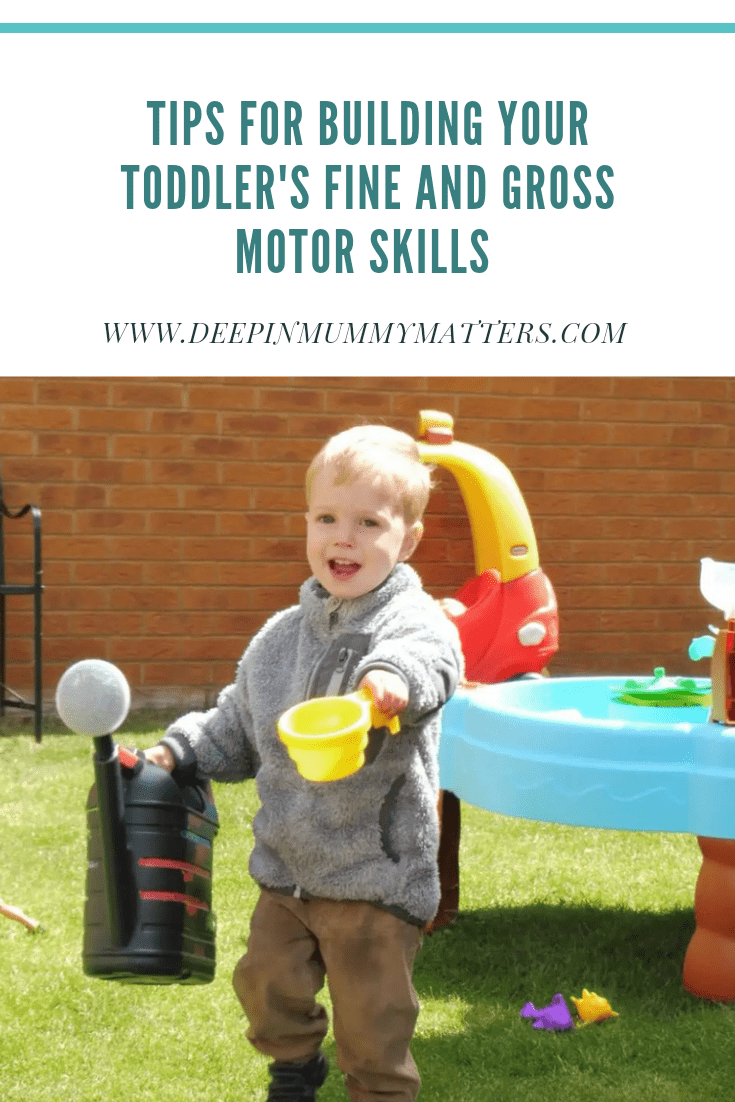Kids grow very quickly! When your baby is born, they can’t even lift their head, but by the time they’re three, they’re running, jumping, feeding themselves and drawing. The transformation from newborn to a rambunctious toddler is a magical journey for parents and drives home just how much development happens in the first few years of life. Motor skills help your toddler explore their world, discover new sensations, and build confidence and independence.
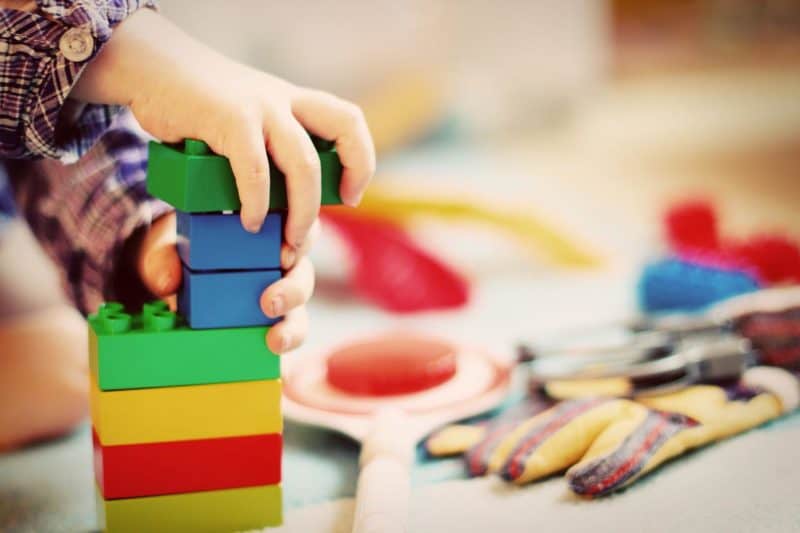
Activities that help your toddler develop their fine motor skills – hand and finger controls – and gross motor skills – large muscle movements – will help further that progress and set them up for school and later life. Here are some tips on why both are important and how to hone these abilities.
Fine motor skills
Fine motor skills involve small movements of the fingers and hands to pinch, grasp and hold. They’re important for everyday activities, like using cutlery, brushing your teeth, dressing and holding a crayon or paintbrush. By the time your toddler starts school, their fine motor skills are responsible for their ability to write. There are links between fine motor skills and language, literacy and brain development.
Activities for building fine motor skills
Small-parts play
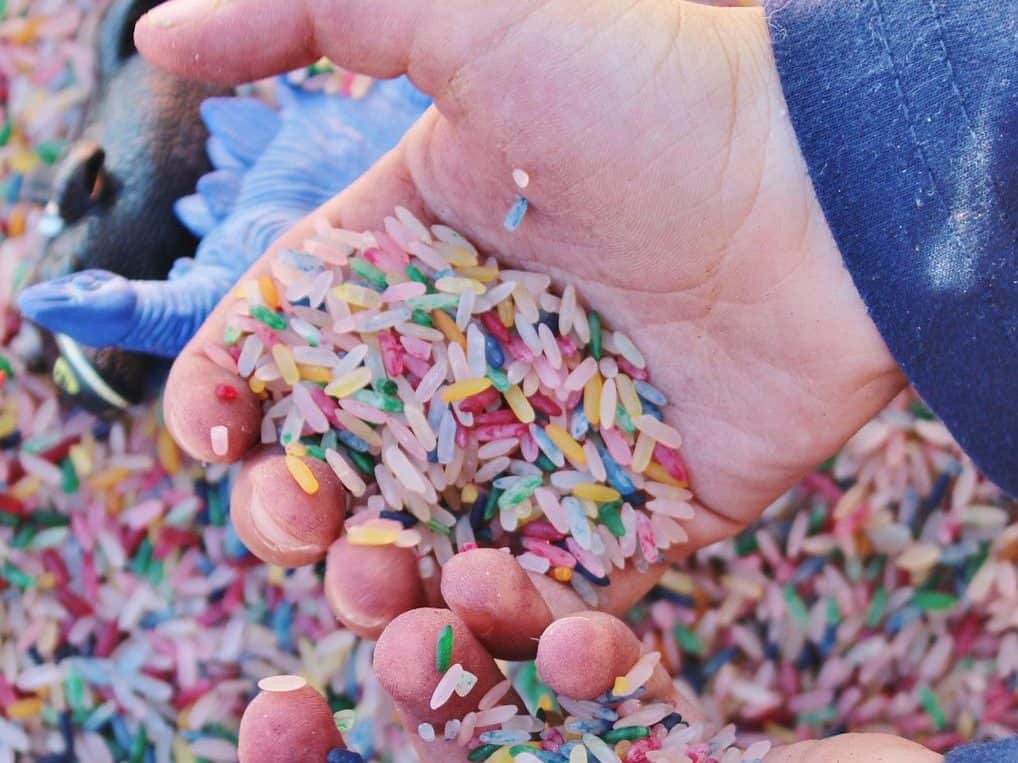
Open-ended play is a great play idea for preschoolers and toddlers. Using loose parts is a brilliant way to build your child’s fine motor skills while encouraging independence. You can purchase pieces for loose-parts play as a set or simply collect items from around your home. Invite your toddler to use them to count, sort, create fantasy worlds and use their imagination to make their own games. Using tongs or play-tweezers to move pieces from one container to another is a great way to develop their pinching mechanism.
Building with Duplo
If your child loves connecting blocks and building, start by introducing larger blocks when they are younger, then move on to Duplo around 18 months to two years. Fitting together Duplo pieces to create a tower or building a pattern – and equally, pulling the pieces apart again – increases their dexterity and is great for imagination and problem-solving.
Making playdough
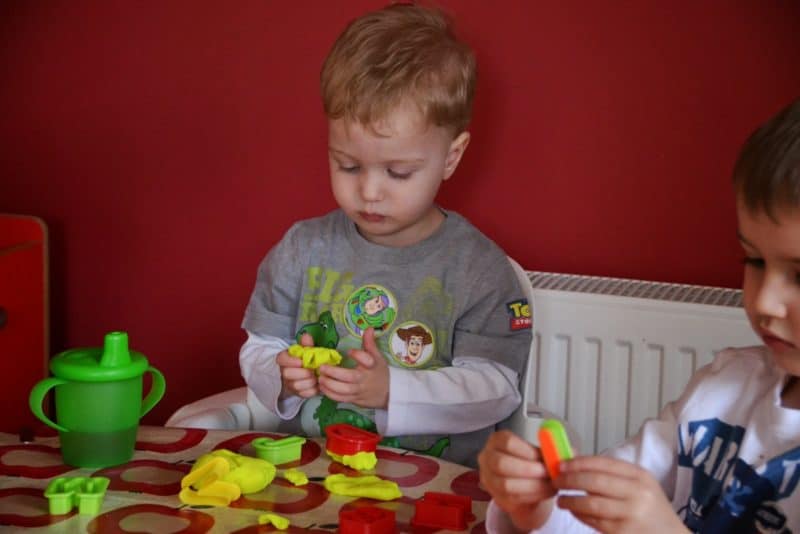
Involve your toddler in making playdough from scratch, helping measure ingredients and mix the dough. Once it’s cooled, encourage them to pinch off small pieces of dough and roll them in their fingers. Use cookie cutters to make shapes and pieces from your small-parts collection to create a story.
Arts and crafts
Finger painting, using a paintbrush and holding crayons all help develop the pre-writing skills your toddler will need for school. Other arts and crafts activities that involve fine motor movements are cutting using safety scissors, glueing onto paper and threading beads to make necklaces.
Daily life
Encouraging your toddler to help with dressing themselves and other household chores will build both their fine and gross motor skills and offer them an increased feeling of independence. To work on their fine motor skills, let them try doing up zips, buttons, velcro and poppers on their clothing. Introduce a fork and spoon for eating at a young age and allow your toddler to brush their teeth before finishing it off with a more thorough job yourself. Let them measure and pour ingredients while making dinner or baking together.
Gross motor skills
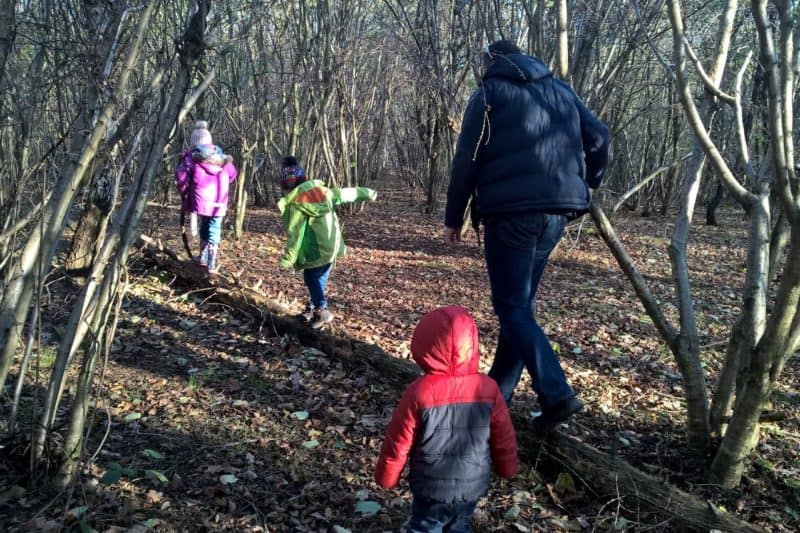
Gross motor skills are large-muscle movements of arms, legs and torso and are generally more broad and dynamic. They are what lets your toddler crawl, walk, run, jump, climb, wave and swing. Without gross motor skills, we can’t sit up or balance and have difficulty executing movements. Working on these with your toddler will help them improve their strength and ability to control their body.
Activities for building gross motor skills
Head outside
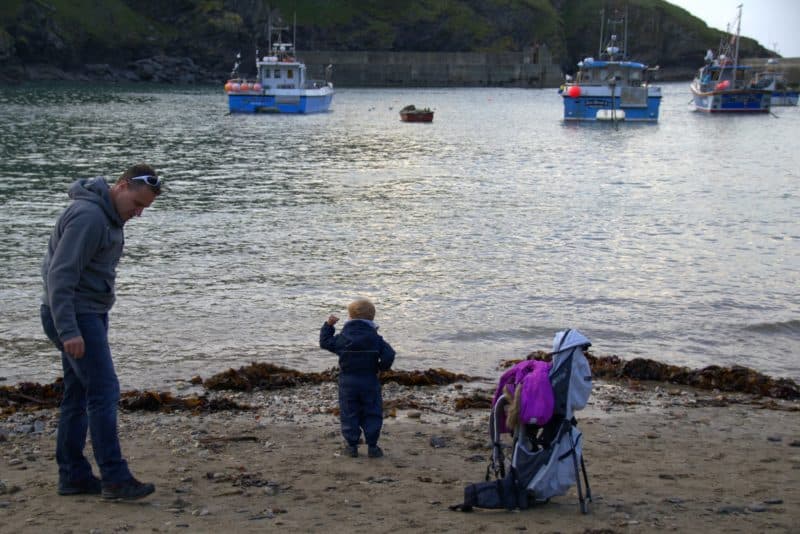
Whilst there are many opportunities for gross motor play at home, heading outside has so many added benefits for you and your child. Fresh air and playing in nature are brilliant for our mental health and stress relief, which are important at any age.
Encourage your toddler to run around collecting leaves, sticks or bark in the woods. Let them dig in the sand at the beach to build the largest sand castle and deepest moat. Head to the playground at any opportunity and watch their swinging, climbing and balancing skills bloom.
If it snows where you live, build snowmen and have a snowball fight. Even in wet weather, dress in waterproof gear, splash in puddles and see nature in a different way. There are so many opportunities for gross motor play outdoors, which all offer intangible benefits for children.
Dance party
Inside or outside, put on your toddler’s favourite music and have a dance-off. Encourage them to move to the music, follow instructions (it’s easy to find playlists of action songs) and boogie. This is a great mood booster, instils a love of music, and lets them get the wiggles out. A toddler dance disco is an excellent activity outside on a sunny day or inside if it’s gloomy.
In your backyard
Whether you start with a toy sit-in car or a free-wheel tricycle, make sure you have some ride-on toys at home. These are great for developing core strength and teaching your child to balance. As they get more experienced, introduce a scooter and then a bike. Ball games and games like catch the flag are also great for developing strength and hand-eye coordination.
Daily life
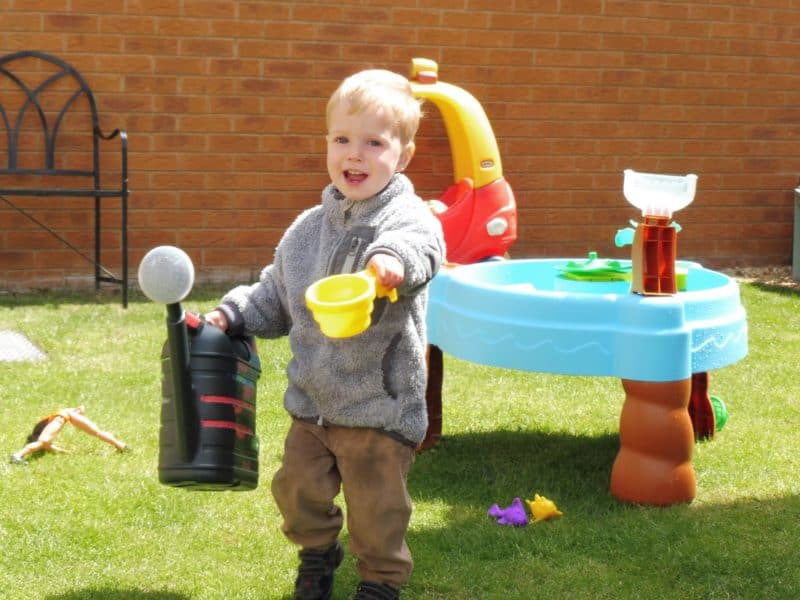
There are tons of activities to involve your toddler in that will boost their gross motor skills – and the bonus is it makes life easier for you! Toddlers absolutely love to help, so harness their boundless energy to help with your chores. Get your child to carry small bags of groceries in from the car, load and unload washing, and “sweep” the house with a child-sized broom and strip sheets off their bed.
These practical tips give you ways to work with your toddler on building their fine and gross motor skills through play and daily activities. All toddlers develop at different rates and hit milestones in their own time, but it’s best to approach your doctor or paediatrician if you have any concerns.
No matter their level, there is always something you can introduce to challenge your toddler’s abilities, and since all toddlers love movement, they won’t even realise you’re targeting specific skills. Time spent helping them achieve goals now will pay off in a few years when they start school.
